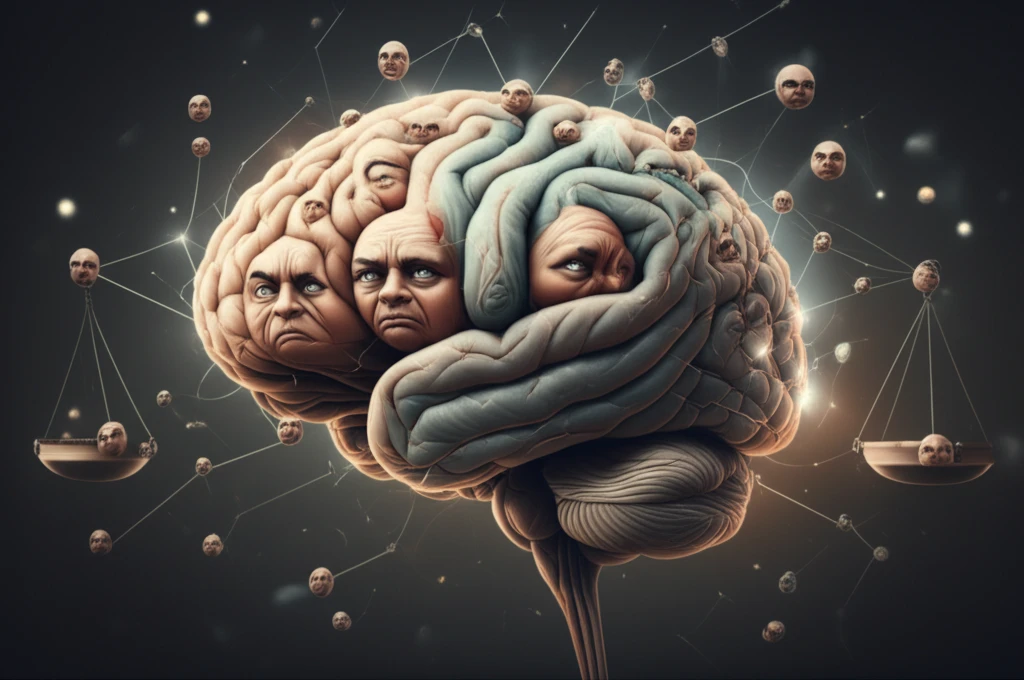
Gut Feelings & Moral Quandaries: How Disgust Shapes Your Decisions
"New research reveals the surprising link between disgust sensitivity and moral judgment, uncovering how your emotional responses influence your ethical choices."
We make countless decisions daily, ranging from simple preferences to complex ethical dilemmas. While we often believe we arrive at these decisions through rational thought, emotions play a significant, often unconscious, role. One such emotion, disgust, has a surprisingly powerful influence on our moral compass.
New research from Scientific Reports sheds light on the intricate relationship between disgust and moral judgment. The study reveals that subliminal exposure to disgust-related stimuli can subtly shift our perceptions of what is morally acceptable, and that this effect varies significantly depending on individual sensitivity to disgust.
This article delves into the findings of this study, exploring how disgust primes can alter fronto-temporal functional connectivity in the brain, ultimately influencing our moral decisions. We'll uncover how individual differences in disgust sensitivity impact these neural processes, and what this means for our understanding of moral cognition.
The Disgust-Morality Connection: More Than Just a 'Bad Taste'

Disgust, often associated with things we find offensive or repulsive, has long been linked to moral cognition. Previous studies have demonstrated that both subliminal and conscious exposure to disgust stimuli can influence moral judgments. Researchers propose that this effect stems from dual-process models of decision-making, where rational and social-emotional components intertwine to determine our moral choices.
- Disgust primes: Subliminal exposure to disgust-related stimuli (e.g., facial expressions).
- Moral judgments: Evaluations of the acceptability of actions in moral dilemmas.
- Utilitarian actions: Choices that maximize overall well-being, even if it involves harm to an individual.
- Disgust sensitivity: The degree to which an individual is affected by disgusting stimuli.
Implications and Future Directions: Is Our Moral Compass Really That Sensitive?
This research offers valuable insights into the complex interplay between emotions and moral decision-making. By demonstrating how disgust primes can subtly alter neural processing and influence moral judgments, the study underscores the importance of considering individual differences in emotional sensitivity.
The findings further suggest that moral judgments aren't solely the product of conscious reasoning but involve the integration of social and emotional information. Disruptions in this integration, as seen with disgust priming, can lead to shifts in our moral compass.
Future research should investigate the specificity of this effect across various emotional, stimulus, and moral categories. Additionally, exploring the potential for interventions that mitigate the influence of emotional biases on moral decision-making could have significant implications for promoting more rational and ethical choices.
